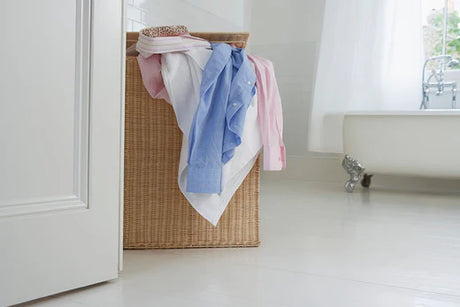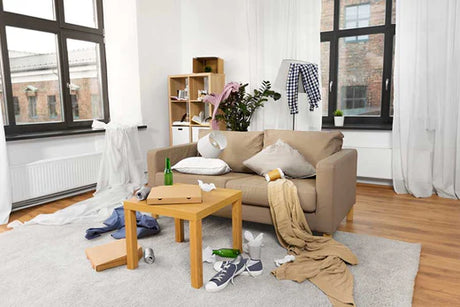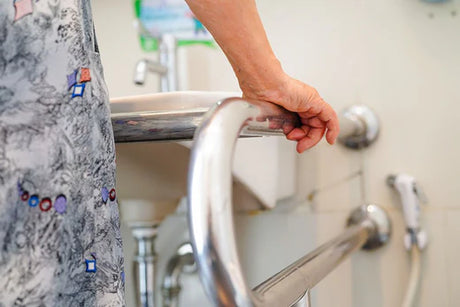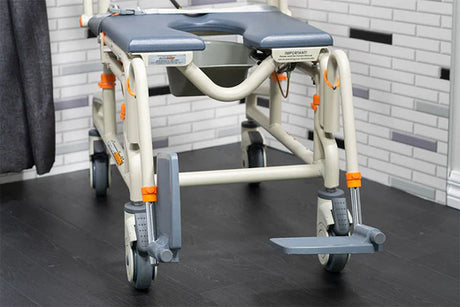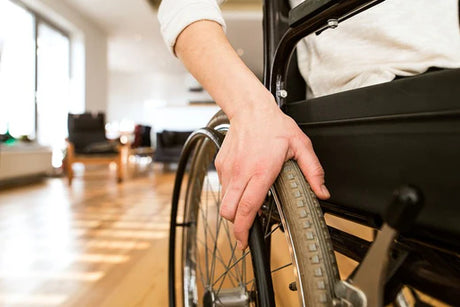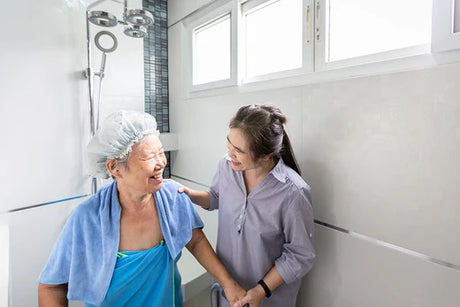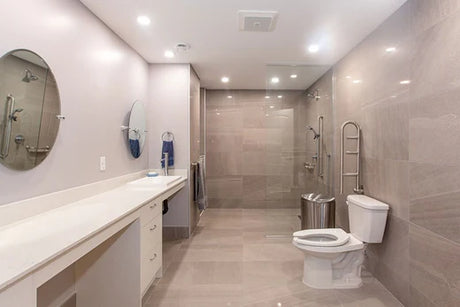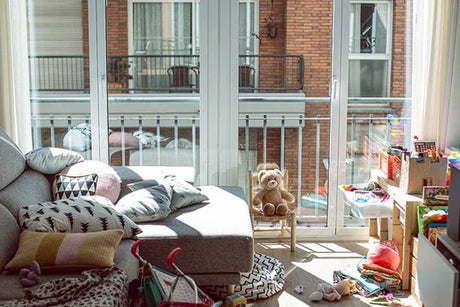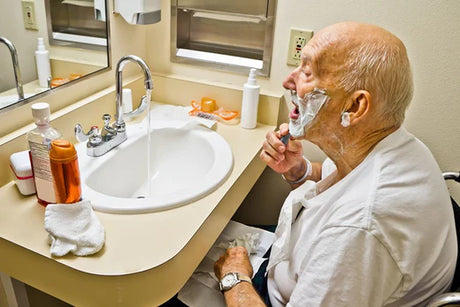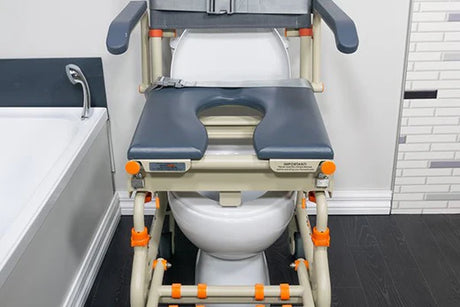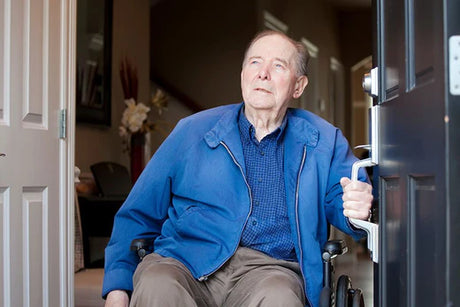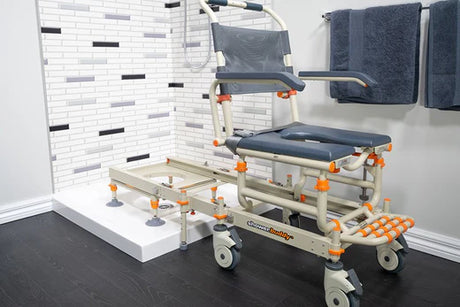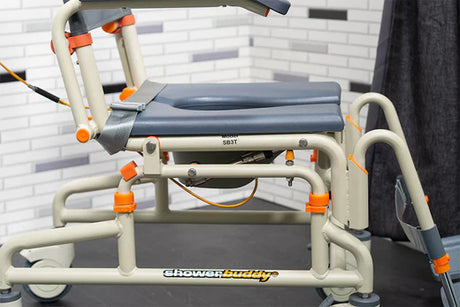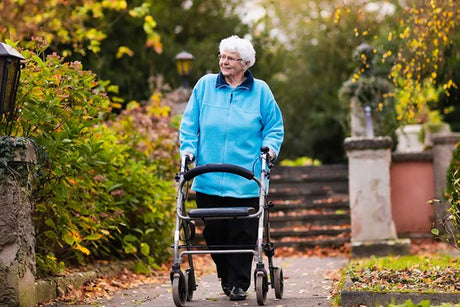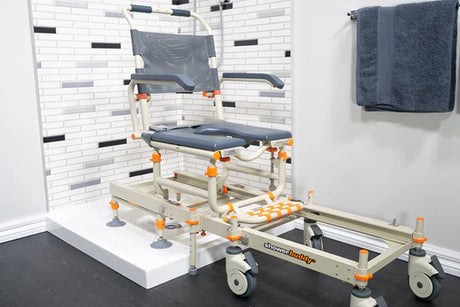Let’s take a look at some of the factors involved with looking after an aged loved one at home.
Making the commitment of care
There’s no way to put it lightly – looking after an elderly parent or grandparent is a big job. It can cause a lot of stress, particularly in the early stages and times of poor health. Committing to caring for your loved one needs to be a careful decision, that includes the whole household, doctor, and any current healthcare providers. Make sure you ask questions around the extent of care needed and establish for how long and under what circumstances you are comfortable providing care. While you can’t predict exactly how things will go, setting some parameters around home care will help make decisions down the track if and when things change.

Understanding health and medication requirements
Most importantly for any aged care at home arrangement, is the detailed understanding of your loved one’s health and disability conditions. You will need to meet with all health support providers and build a comprehensive picture of their needs. In these discussions you’ll learn about how their health issues manifest, the medication required and lifestyle they’ll need to live in order to best manage these conditions.
This can be a tricky process, especially if your loved one has a range of different medications and care requirements. Some families prefer to have a nurse or carer come in during the early phase of senior at home care to administer medication and help teach the family about doing this themselves.
As you gather information about your elderly loved ones health, you will start to determine roles and responsibilities of care. For example, you may provide assistance with taking medication, but get outside help for bathing. All health conditions should be discussed, particularly regarding how they evolve over time.
Preparing the home for senior care
Once you’ve made the call to look after your elderly loved one, you will need to prepare your home to accommodate their needs. This isn’t something you’ll necessarily have to do yourself, with the likes of Occupational Therapists able to consult and recommend solutions to preparing the home for a mobility-impaired senior.

There’s a number of things you can do to prepare the home:
Clean the home
This isn’t just a surface clean, but cleaning out the home of clutter to make moving around much easier – especially if mobility equipment will be used. This is a good excuse to donate, recycle, or dump items that have been sitting around collecting dust. Clear the path now before your loved one moves in. Once that’s done, do a top to bottom clean – it may be a while before you or the family have the time to do a full clean again. Windows, dusting surfaces, vacuuming – the works.
Reshuffle rooms
It may be more practical to have your elderly loved one in a room that’s close to the bathroom and within close proximity to everyone else, too. We’d recommend against seniors in rooms on a different level or down the end of the house away from the communal areas. You want quick, unobstructed access to your loved one should they need anything. Being close to the bathroom will reduce the instances of an accident and make everyone’s life much easier.
Build a daily plan with the OT
This plan will outline what typical days/weeks will look like. It’s vital that your elderly loved one is in control here – make sure they outline all the activities and hobbies they like doing to an Occupational Therapist who can work with you both to build a plan. They can identify areas of mobility that need support by you or some equipment and have this all prepared before anyone moves in.
Access
Think about how easy it currently is to get in and out of the house? How about moving between rooms? If the answer is not very, you’ll want to look at some access solutions. These can include ramps, lifts and platforms. In some cases the access to a home makes it impractical for the elderly, in which case serious consideration should be given to an aged care facility or an alternative family member’s home.
Looking after the rest of the household
If you do go ahead with caring for your elderly family member, this doesn’t mean everyone else’s needs should be neglected. Make a plan to continue supporting your kids with their hobbies, doing the school run, spending time with your partner and looking after you, as well. Don’t give up on the things that make you happy whether it’s gardening, reading, watching the latest movies or simply going for a walk. If you neglect yourself or the rest of the family, your care for this aged family member is going to be hard to sustain – the last thing anyone wants is for resentment to grow.
Making sure you have the support you need
And this is why support is absolutely essential. Having a senior family member at home doesn’t mean you don’t get access to health and support services who can visit your home and help out. Everything from transport to bathing to meal prep is available, so make sure you speak with your loved ones health provider about options. It’s a good idea to line this up from the start, even if you are fairly confident that you can take the lion’s share of the duties yourself. When you or the family need a break, it’s good to know support is there.

Support comes in the shape of equipment, too. Take showering for example – equipment is available that helps transfer, support and bathe your elderly loved one in the shower, without having to do heavy, unstable lifting movements.
Speak with the Occupational Therapist who can provide specific advice on the equipment your family member needs to get through the day as easy as possible.
Ensuring your family finances are okay
The last thing you want to have to worry about is money. Taking on the job of caring for an elderly family member can come at the cost of a full time job. Before taking on the responsibility, you need to do a revised budget to make sure the household income will support everyone without great stress. There are financial support programmes in place to help here – make sure you research and confirm what you’re entitled to before going ahead.
Support your loved one to maintain dignity and respect
Taking on a senior family member at home is a wonderful, supportive act. In doing so, part of your role is to support the individual to be as independent and respected as possible – even if this means choosing their daily activity, or at what moments they want a professional carer (e.g. bathing) involved vs. a family member. Dignity is absolutely critical here, and each person’s version of this is different. The best course of action is to keep communication high with your loved one, regularly reviewing if the home care arrangement is working for them.
Say if you’re not okay
This is a hard journey, and sometimes we can be left feeling stuck or overwhelmed. If you’re struggling then you need to advise family, health professionals and other support people involved with your elderly loved one’s journey. Help is always available, it’s just a matter of asking for this when you need it.
Further reading
- Keeping Aging Parents At Home: 5 Top Caregiving Tips – DailyCaring
- Caring for an older Australian – Services Australia
- Support for Elderly Aged Care – My Aged Care










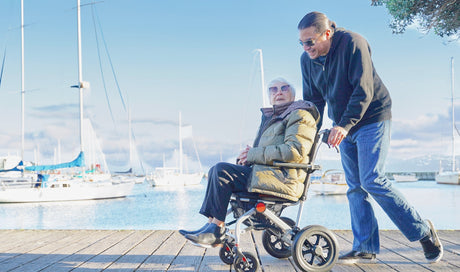
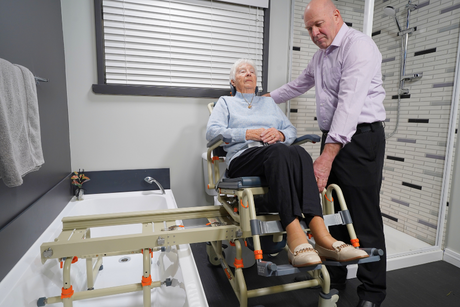
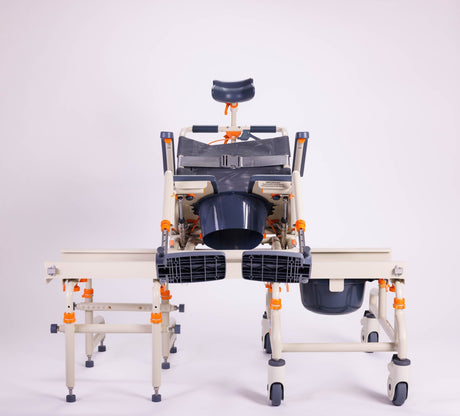
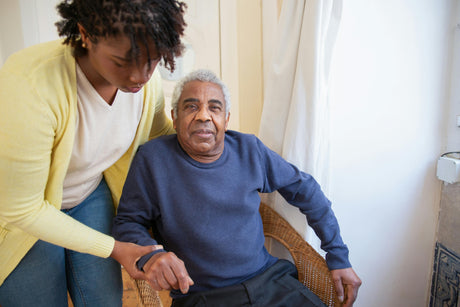
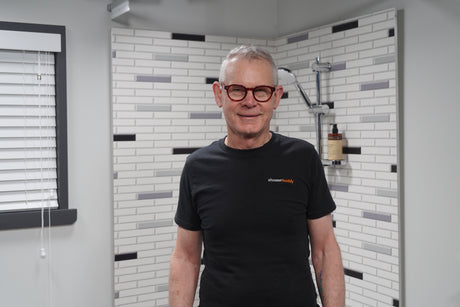
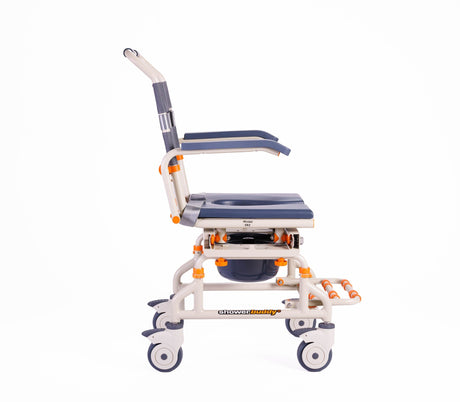
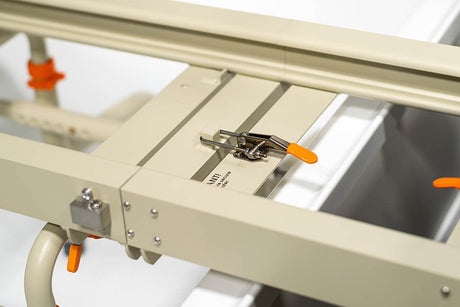
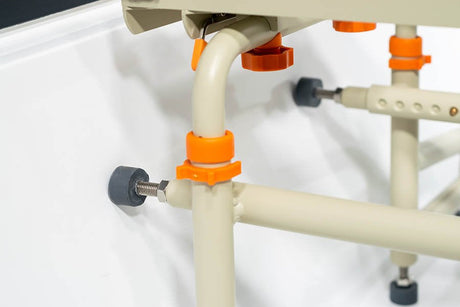
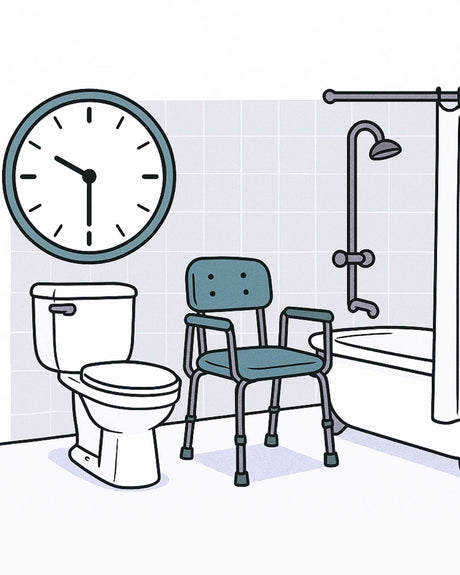
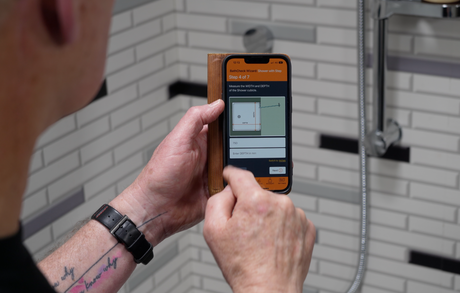
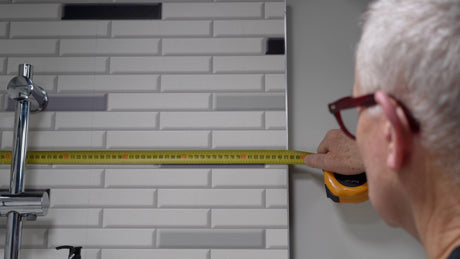

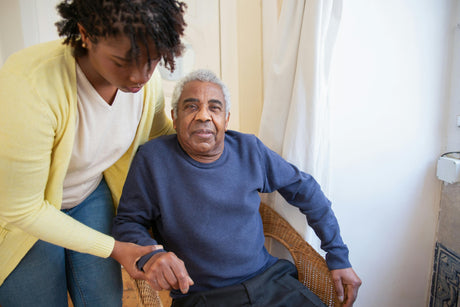
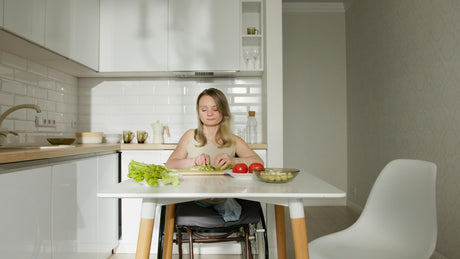
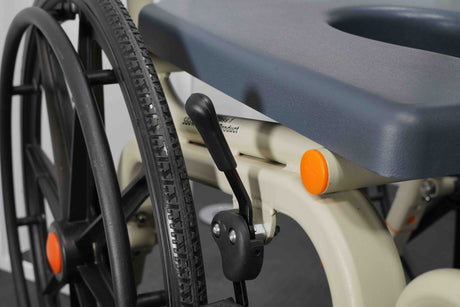


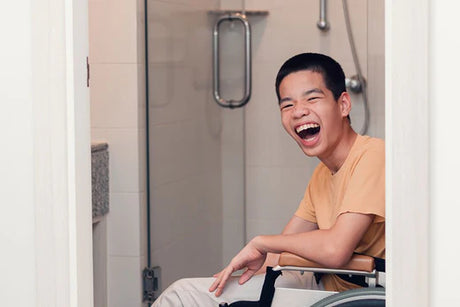
![Toilet Training A Young Child With Mobility Challenges [And How A Shower Chair Can Help]](http://shower-buddy.com/cdn/shop/articles/toilet-training-disabled-child_520x500_a90e5234-d372-435d-aa56-8da15dd3836c.webp?v=1722557239&width=460)

